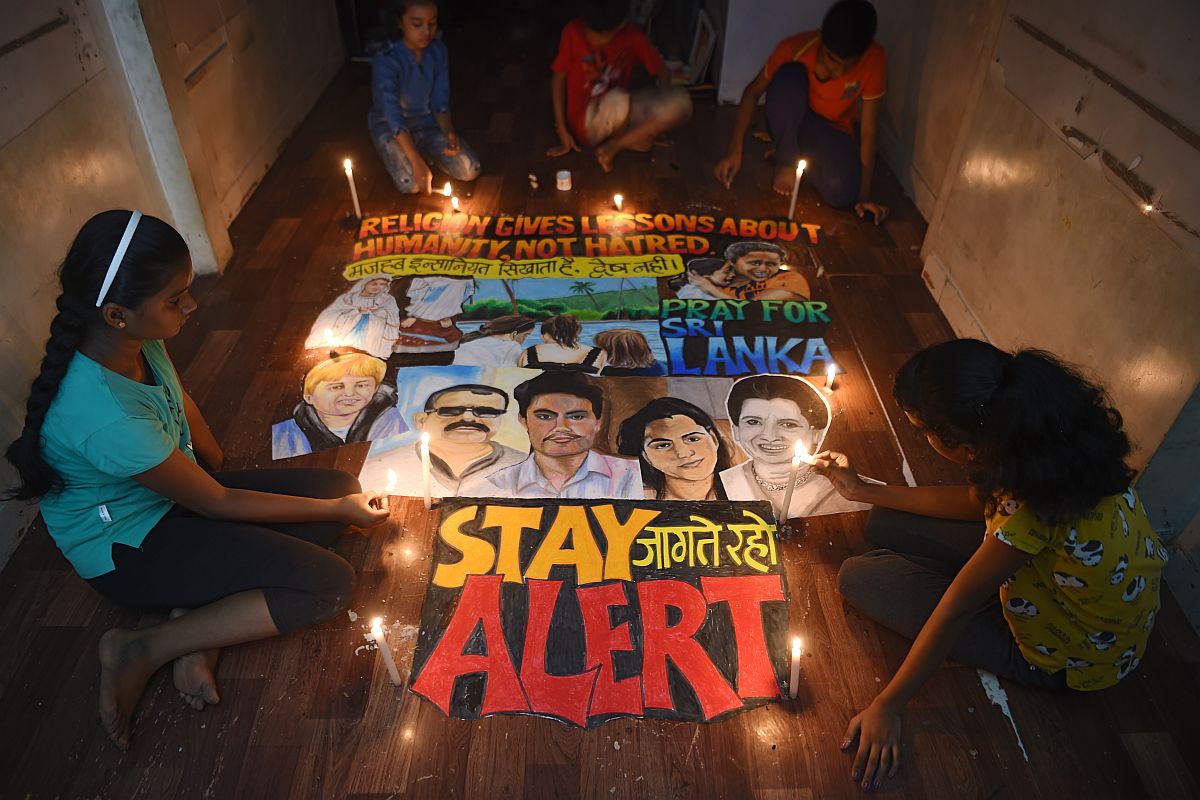New Orleans
Terror The New Year’s Eve attack in New Orleans, when an US Army veteran drove a truck into a crowd of revellers, has shaken America and raised difficult questions about the rising threat of ISIS-inspired violence in everyday spaces.
Meanwhile, Sri Lankan President Maithripala Sirisena on Wednesday claimed that intelligence report warning of attacks was not shared with him adding that he expects to change heads of defence forces within 24 hours.

Indian students light candles near a painting as they pay tribute to the victims of the Sri Lankan terror attacks, in Mumbai on April 23, 2019. (Photo: AFP)
India is learnt to have sent as many as three alerts before the deadly bombings in Sri Lanka, reports said.
India had alerted Sri Lanka as early as April 4 to the possibility of imminent suicide attacks which became a reality on April 21, the Easter Sunday killing 359 people and injuring over 500.
Advertisement
The blasts targeted St Anthony’s Church in Colombo, St Sebastian’s Church in the western coastal town of Negombo and Zion Church in the eastern town of Batticaloa around 8.45 am (local time) as the Easter Sunday mass were in progress.
Advertisement
Explosions were also reported from three five-star hotels — the Shangri-La, the Cinnamon Grand and the Kingsbury in Colombo.
According to reports, the first alert was on April 4, which told Sri Lanka that, apart from churches, the Indian High Commission in Colombo could be a target.
The second alert, according to the Associated Press, was sent on Saturday, the day before Easter, which provided specific information about possible targets.
The third alert was reportedly sent hours before the first suicide blast.
Sri Lankan Prime Minister Ranil Wickremesinghe has acknowledged that alerts had been sent by India.
In an interview to the NDTV, the prime minister said India had shared intelligence inputs with Sri Lanka but there was a lapse in how the country handled it.
Meanwhile, Sri Lankan President Maithripala Sirisena on Wednesday claimed that intelligence report warning of attacks was not shared with him adding that he expects to change heads of defence forces within 24 hours.
A rift between Sri Lanka’s president and prime minister, which sparked a crisis last year was reportedly the reason behind the intelligence report not being shared.
The President had fired the Prime Minister last year but was forced to reinstate him after a furore and a judicial order.
Prime Minister Ranil Wickremesinghe was kept out of intelligence briefings since he fell out with the president, a report in Reuters said.
On Tuesday, the Islamic State or the ISIS had claimed responsibility for the deadly attacks without providing any major evidence.
Earlier on Monday, the Sri Lankan government said that it suspected a local Islamist extremist group called National Thowheeth Jama’ath (NTJ) to be behind the deadly suicide bomb blasts, adding that it was investigating whether the group had “international support.”
Documents seen by AFP show Sri Lanka’s police chief issued a warning on April 11, saying that a “foreign intelligence agency” had reported NTJ was planning attacks on churches and the Indian High Commission.
Advertisement